Are you into Korean historical dramas? This is a popular genre in Korea, and although drama series are prone to exaggerations and adaptations, we can still learn plenty about how life was in the old days.
Below, we take a look at the 27 kings of Joseon Korea and how they are portrayed in various dramas, from the founding king to those who were overthrown.
Do the dramas do a good job at presenting facts about the period they operate in? How accurate are the costumes?
Let's dive into the exciting world of Korean historical dramas!
Sunjong (1907-1910)
*Second Emperor Of Korea
Historical Dramas: The King: Eternal Monarch, Princess Hours, The Last Princess
 Princess Hours (2006)
Princess Hours (2006)
Gojong, the last king of the Joseon Dynasty, founded the Korean Empire in 1897. After pressure from Japan, he abdicated in 1907, and was succeeded by his son, Sunjong.
Most of the dramas that deal with the end of the Korean Empire will have characters that are based on Sunjong of Korea. Sunjong's reign as Emperor officially ended with the Japan-Korea Treaty of 1910, when Japan annexed Korea.
Some dramas that address this period are set in alternate universes, although the struggle for independence is very present.
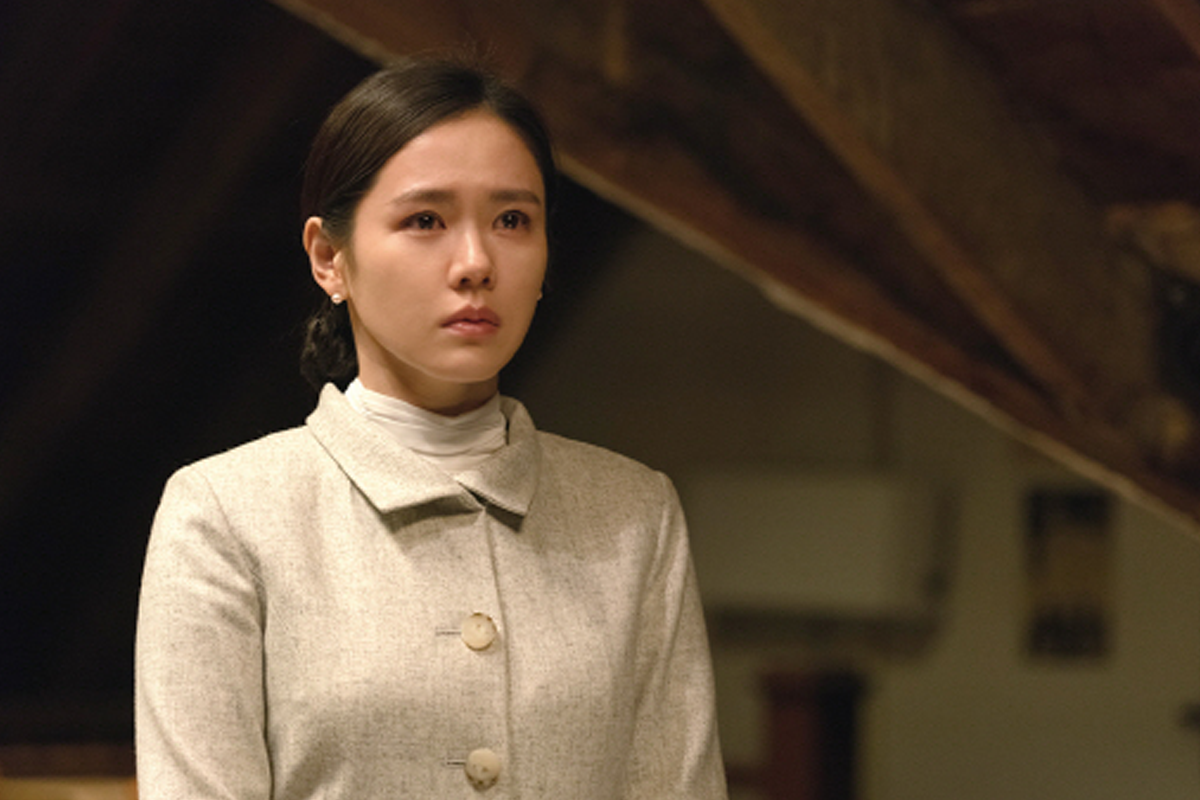 The Last Princess
The Last Princess
Furthermore, the movie The Last Princess (2016) retells the life of Sunjong's half-sister, Princess Deokhye. The daughter of Gojong, she was the last princess of the Joseon Dynasty.
Gojong (1864-1907)
*Last King of Joseon and first Emperor of Korea
Historical Dramas: Mr. Sunshine, Empress Myeongseong
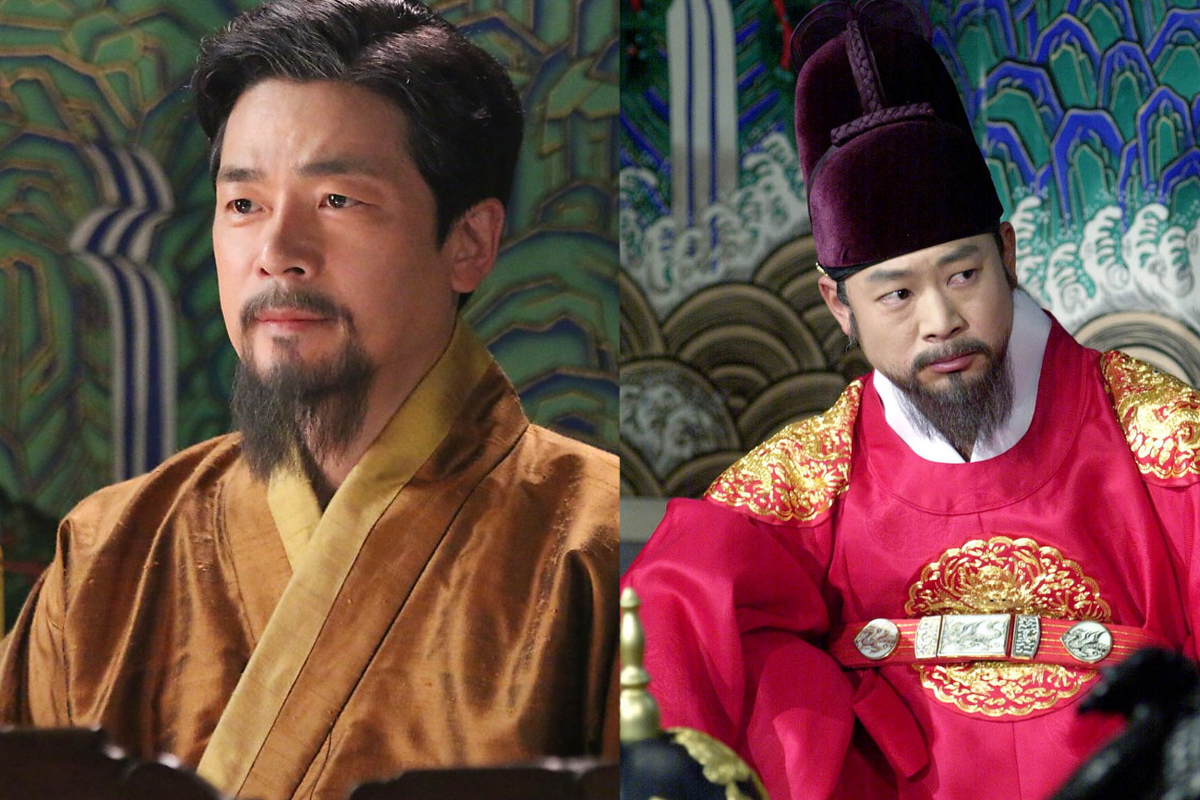 Mr. Sunshine / Empress Myeongseong
Mr. Sunshine / Empress Myeongseong
The two most famous Korean dramas that describe the end of the Joseon Kingdom are Mr. Sunshine (2018) and Empress Myeongseong (2001-2002). In the face of reforms and both internal and external troubles, many tragic events unfold during this turbulent time.
The end of the Joseon Dynasty is not that long in the past, so the drama writers have to be careful with how they present the history. Nevertheless, both dramas received criticism of being either too lenient or too harsh on colonial Japan.
Cheoljong (1849-1864)
Historical Dramas: Mr. Queen
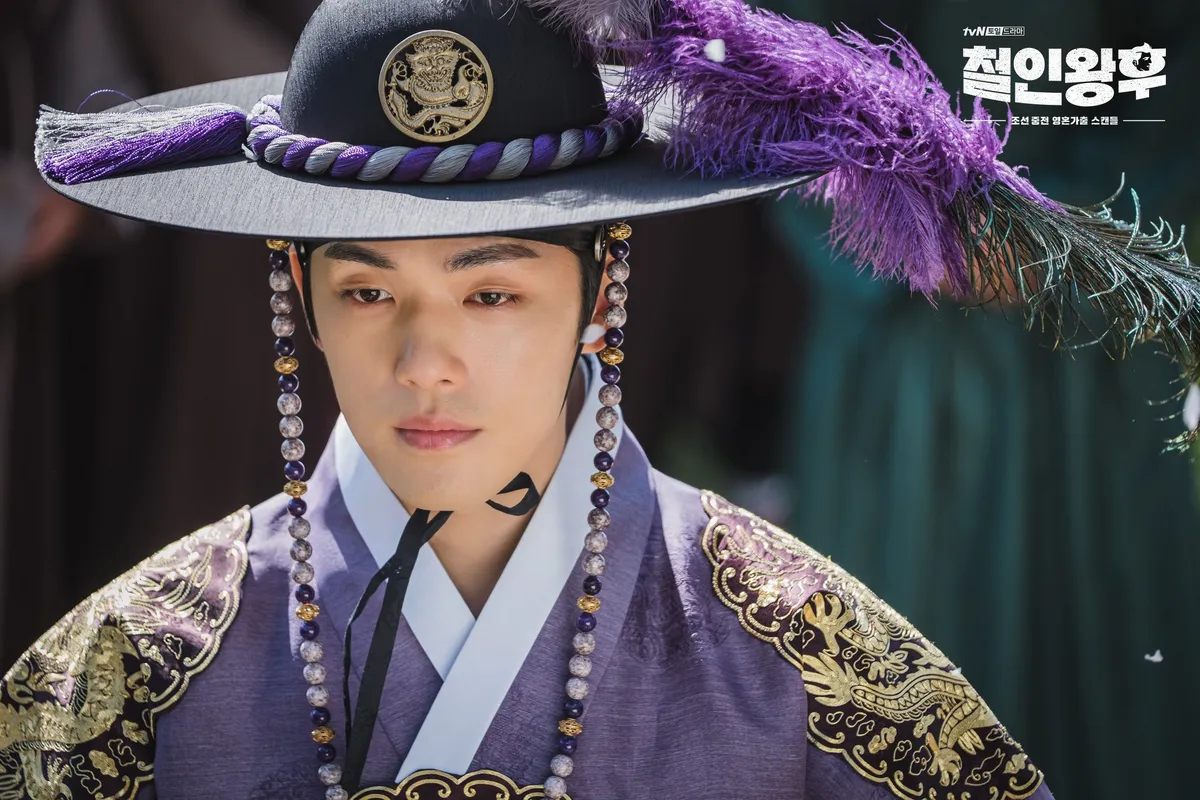 Mr. Queen
Mr. Queen
The historical comedy Mr. Queen (2020) is goofy and hilarious, but it also depicts Cheoljong's tragic life story. At the age of 13, his elder brother was executed on the charge of conspiracy, and his family was exiled to Gangwha Island.
These events kept King Cheoljong awake at night in the drama.
According to historical records, King Cheoljong was a puppet monarch who was addicted to wine. In Mr. Queen, however, he is portrayed as a diligent monarch who loves his people.
Many viewers were also upset about how the drama seemed to belittle Korean people and their history.
Heonjong (1834-1849)
Historical Dramas: Heung-boo: The Revolutionist
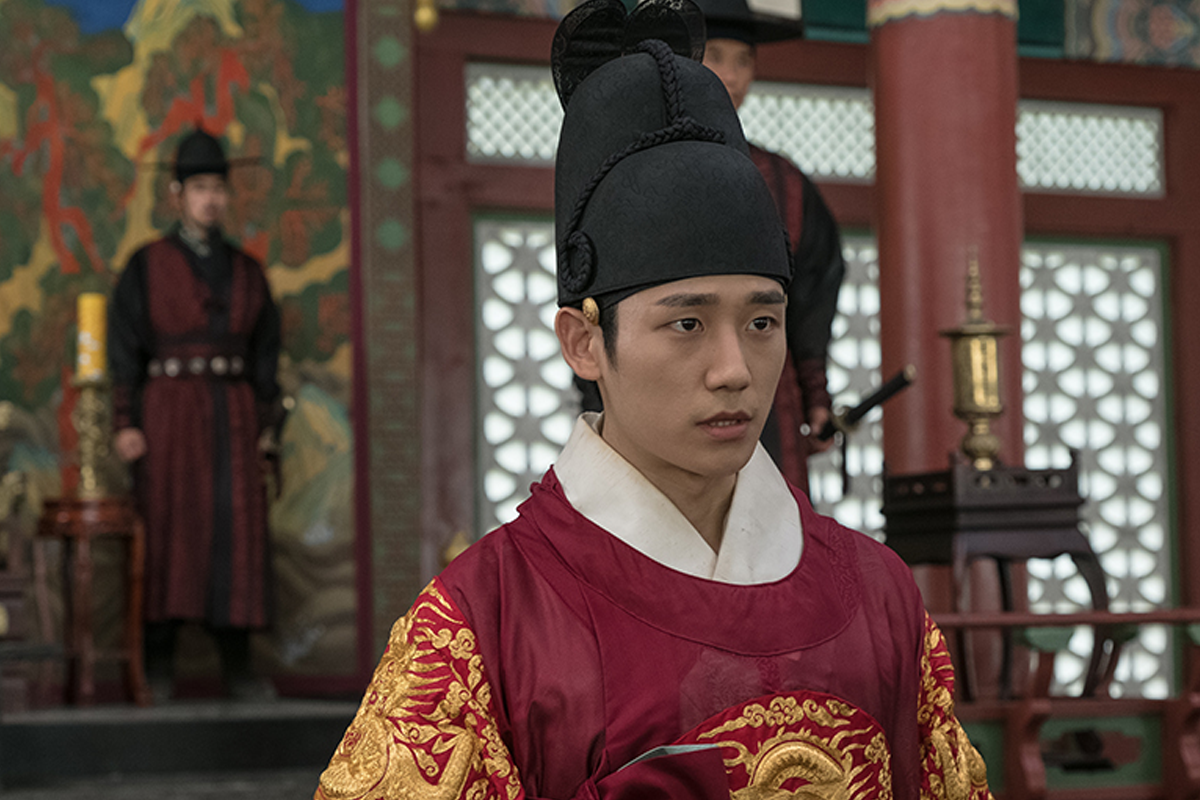 Heung-boo: The Revolutionist
Heung-boo: The Revolutionist
According to records, King Heonjong was only eight years old when he came to power. Just like previously mentioned King Cheoljong, he is therefore considered to have been a puppet king for most of his reign.
During King Heonjong's reign, people's lives were difficult and dire.
The 2018 movie Heung-boo: The Revolutionist, with Jung Hae-in as one of the leads, explores the social background and plight of the people during this period.
King Heojong died at a young age without any heirs. The next king, his distant relative Cheoljong, was adopted by Senior Dowager Queen Sunwon to allow his ascend to the throne.
These events are also depicted in the drama Mr. Queen.
Sunjo (1800-1834)
Historical Dramas: Love In The Moonlight
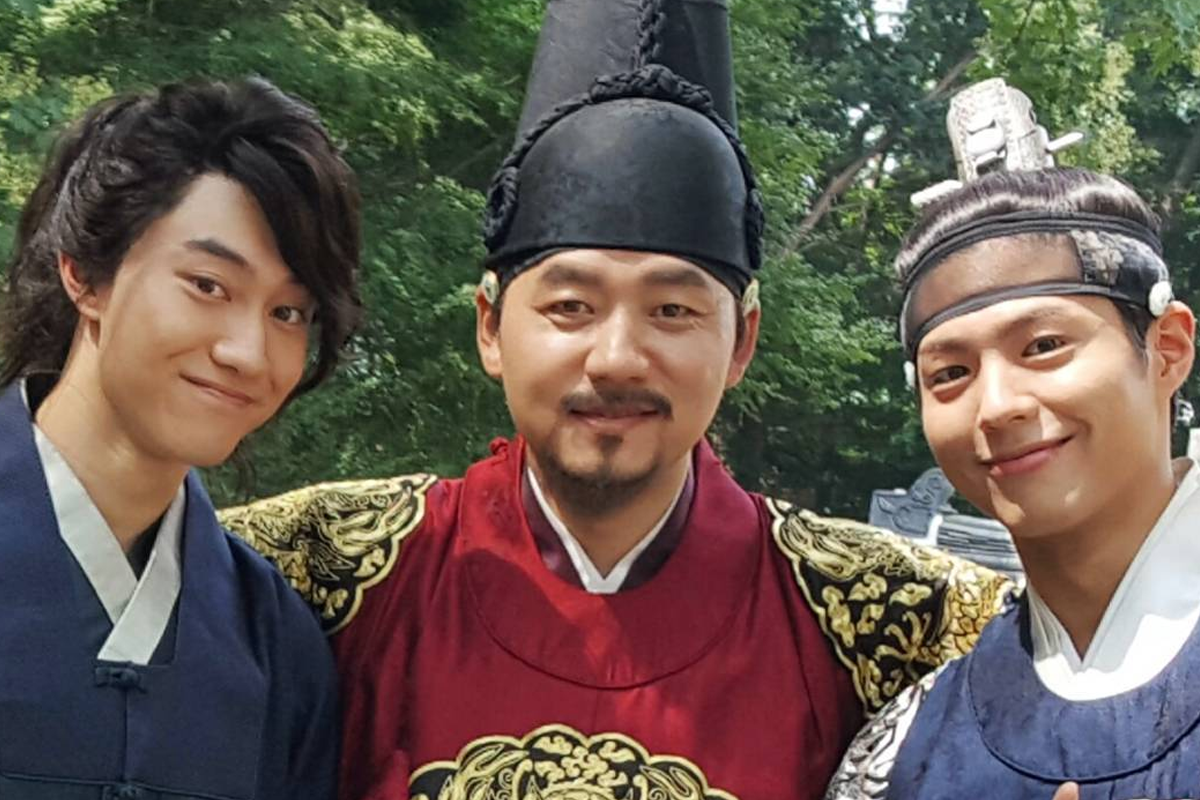 Love In The Moonlight
Love In The Moonlight
We remember the love story between the leads Park Bo-gum and Kim Yoo-jung in the drama Love In The Moonlight (2016). This drama was in fact set during King Sunjo's reign.
Sunjo was the grandfather of King Heonjong, and the adoptive father of King Cheoljong (posthumously; his wife Queen Sunwon adopted Cheoljong after Sunjo's death).
Jeongjo (1776-1800)
Historical Dramas: Lee San, Wind of the Palace, Sungkyunkwan Scandal, The Fatal Encounter
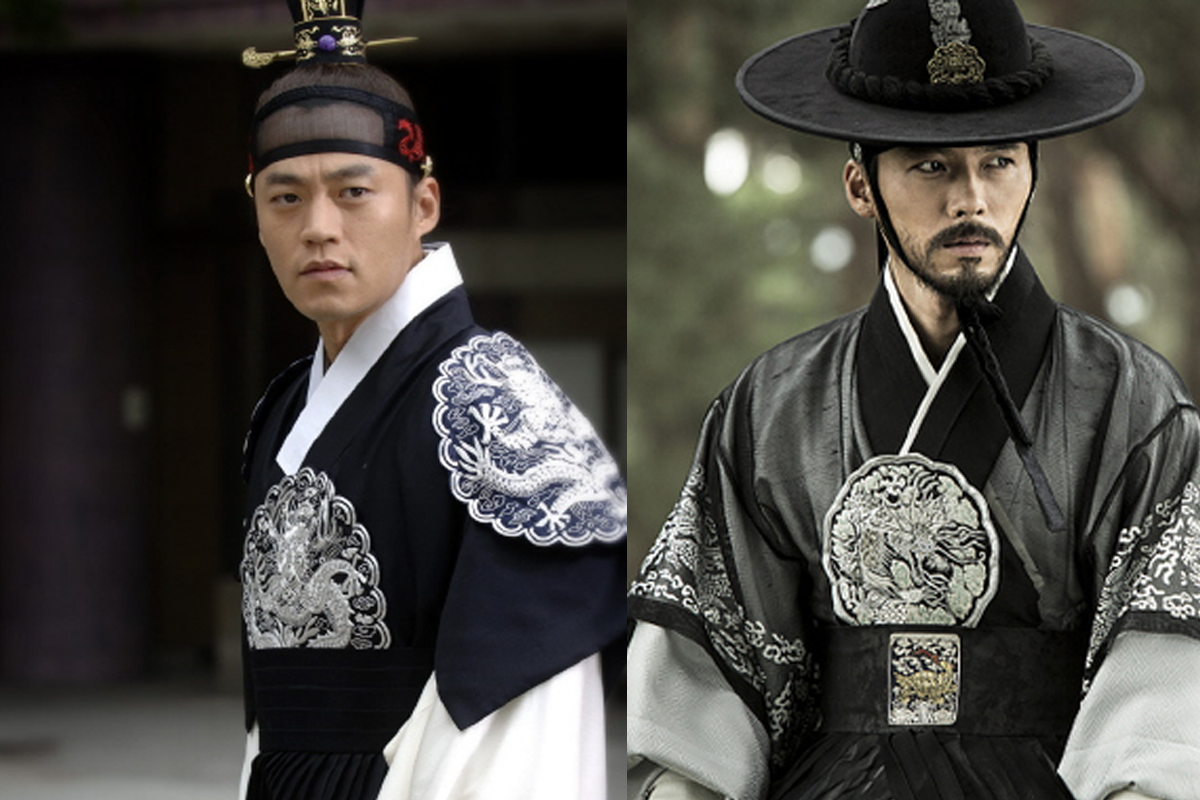
The most famous incident during the reign of King Jeonjo was the suppression of Catholicism. However, King Jeongjo is today regarded as one of the more enlightened and talented kings of the latter part of the Joseon Dynasty.
Dramas that feature King Jeonjo include the 2007 MBC drama Lee San, Wind of the Palace, Sungkyunkwan Scandal (2010), as well as the 2014 film The Fatal Encounter, where Hyun Bin plays King Jeonjo.
Yeongjo (1724-1776)
Historical Dramas: The Throne, Haechi, Dong Yi
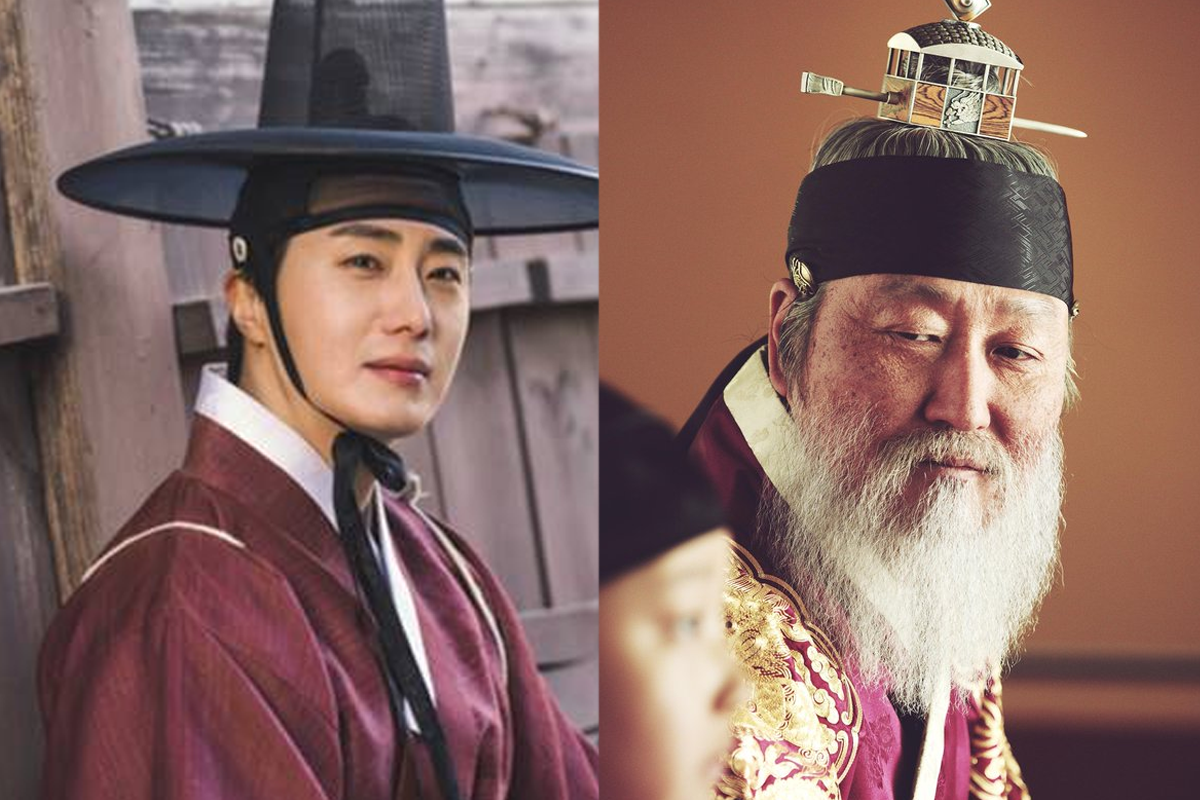 Haechi / The Throne
Haechi / The Throne
King Yeongjo was the longest-reigning monarch of the Joseon Dynasty. He is remembered for ordering his only remaining son, Prince Sado, to be buried alive in a rice chest to be starved to death.
This incident was portrayed in the 2015 film The Throne. In the movie, Song Kang-ho plays King Yeongjo, and Yoo Ah-in plays the role as Prince Sado.
In the drama Haechi (2019), Jung Il-woo stars as Prince Yeoning, who would later ascend the throne as King Yeongjo.
We can also see the birth of Yeongjo in the 2010 drama Dong Yi!
Gyeongjong (1720-1724)
Historical Dramas: The Royal Gambler
 The Royal Gambler / Haechi
The Royal Gambler / Haechi
King Gyeongjong was the half-brother of previously introduced Yeongjo. He died of illness only four years after ascending the throne.
King Gyeongjong doesn't appear frequently in historical dramas, but he stars briefly in dramas such as The Royal Gambler (2016) and previously mentioned Dong Yi (2010).
Sukjong (1674-1720)
Historical Dramas: Queen and I, Dong Yi
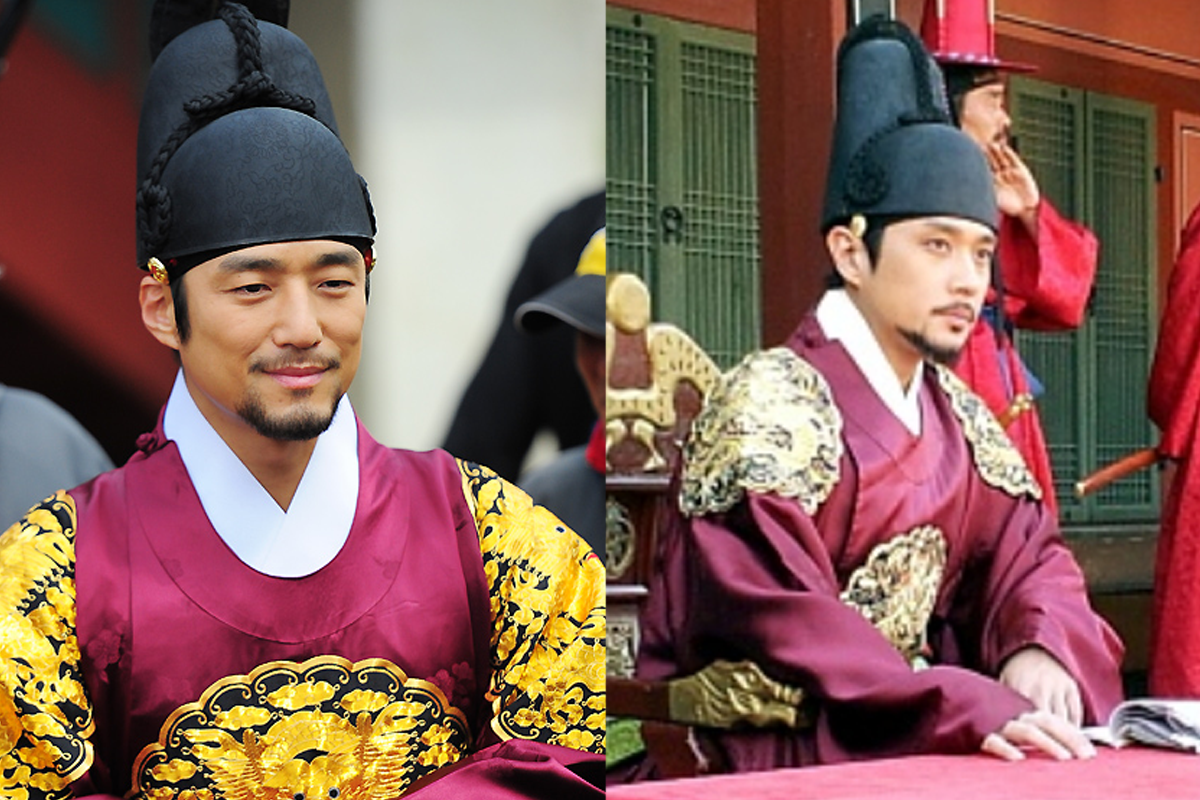 Dong Yi / Queen and I
Dong Yi / Queen and I
The drama that best explains the story of King Sukjong is previously mentioned Dong Yi (2010). At the time, many fans drooled over Ji Jin-hee in his role as King Sukjong.
Another drama with King Sukjong as a theme is Queen and I (2012). In the drama, a scholar from the Joseon Dynasty time travels to modern times in his quest for support for the reinstatement of Queen In-hyun (King Sukjong's second wife).
The real Sukjong ruled for many years. He was a skillful politician who solidified the power of the royal house.
Hyeonjong (1659-1674)
Historical Dramas: The King's Doctor
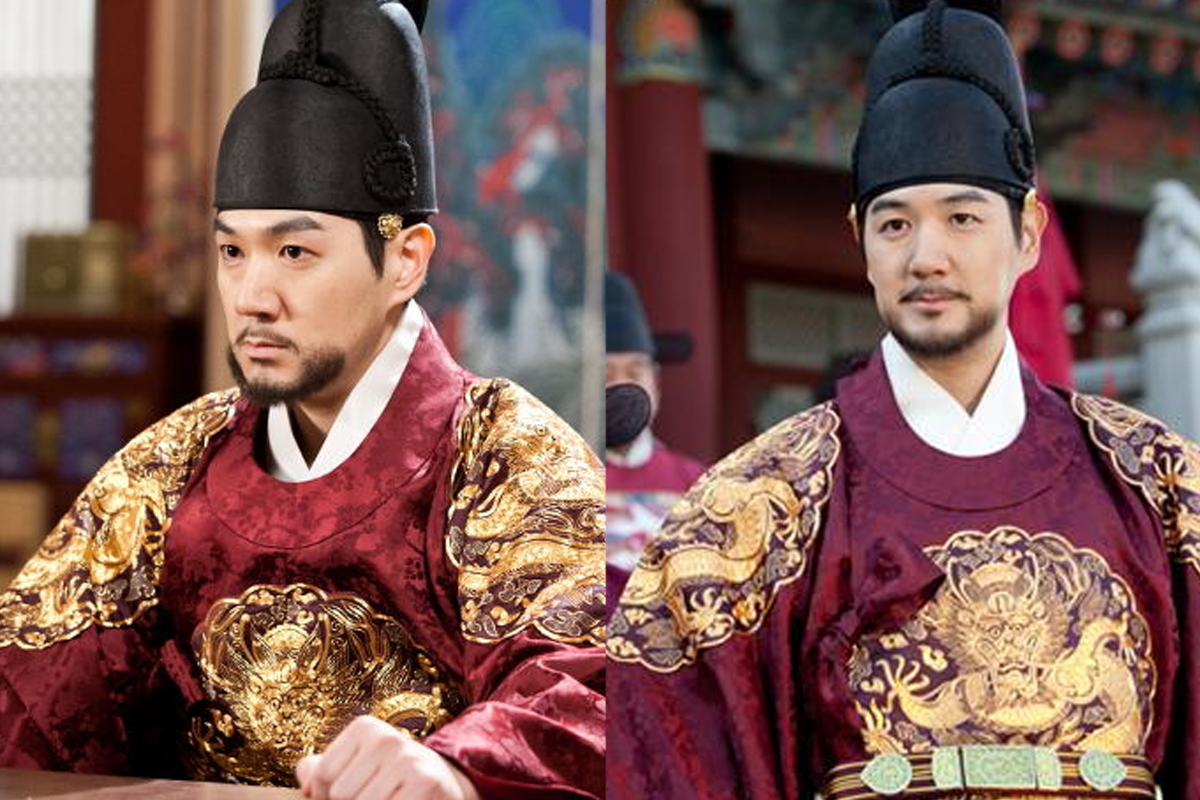 The King's Doctor
The King's Doctor
The most famous drama which portrays King Hyeonjong is The King's Doctor (2012), although the king is not the main character.
King Hyeonjong ruled during a time of heavy conflict when the nation was divided between supporting the new Qing dynasty or remaining loyal to the overthrown Ming dynasty.
Hyojong (1649-1659)
Historical Dramas: Rampant
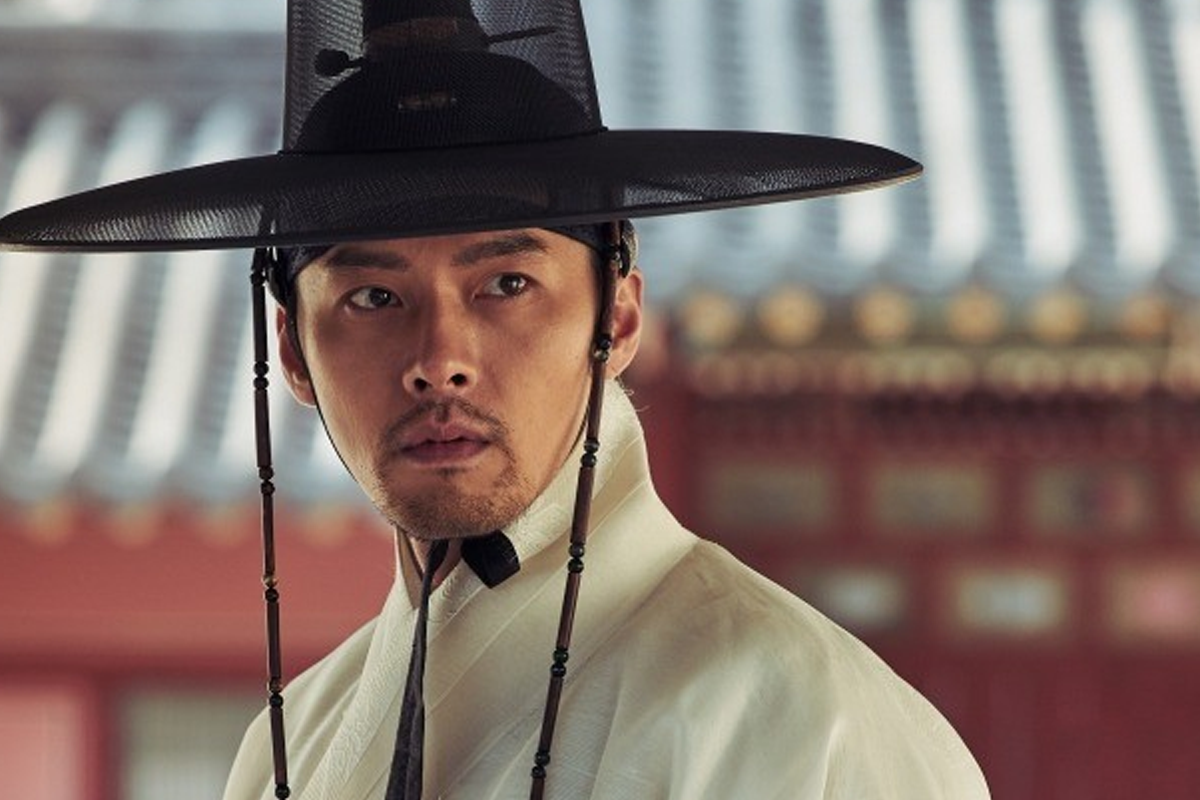 Rampant
Rampant
There are not that many historical dramas about King Hyojong. The 2018 zombie movie Rampant (starring Hyun Bin), however, does allude to events that took place during his reign.
Hyojong is remembered for planning an expansion of Joseon territory on behalf of the neighboring Qing dynasty.
Injo (1623-1649)
Historical Dramas: The Tale of Nokdu, The Slave Hunters, Iljimae
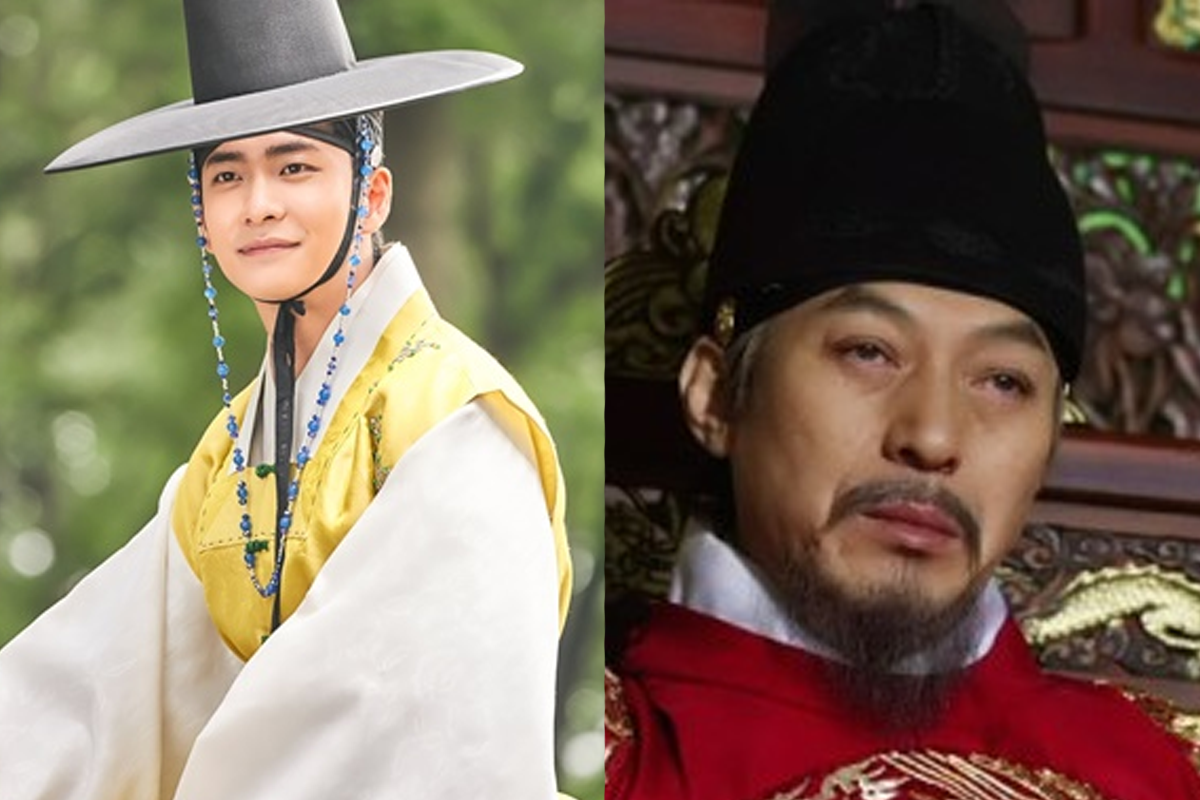 The Tale of Nokdu / The Slave Hunters
The Tale of Nokdu / The Slave Hunters
Who was King Injo? Well, in the 2019 drama The Tale of Nokdu, he is played by Kang Tae-oh.
According to historical records, Qing China invaded Joseon not long after he came to power, and Joseon would surrender to the Qing dynasty during his reign.
Other historical dramas that portray this part of Korea's history are The Slave Hunters (2010), and ljimae (2008).
Gwanghaegun (1608-1623)
Historical Dramas: Masquerade, The Crowned Clown
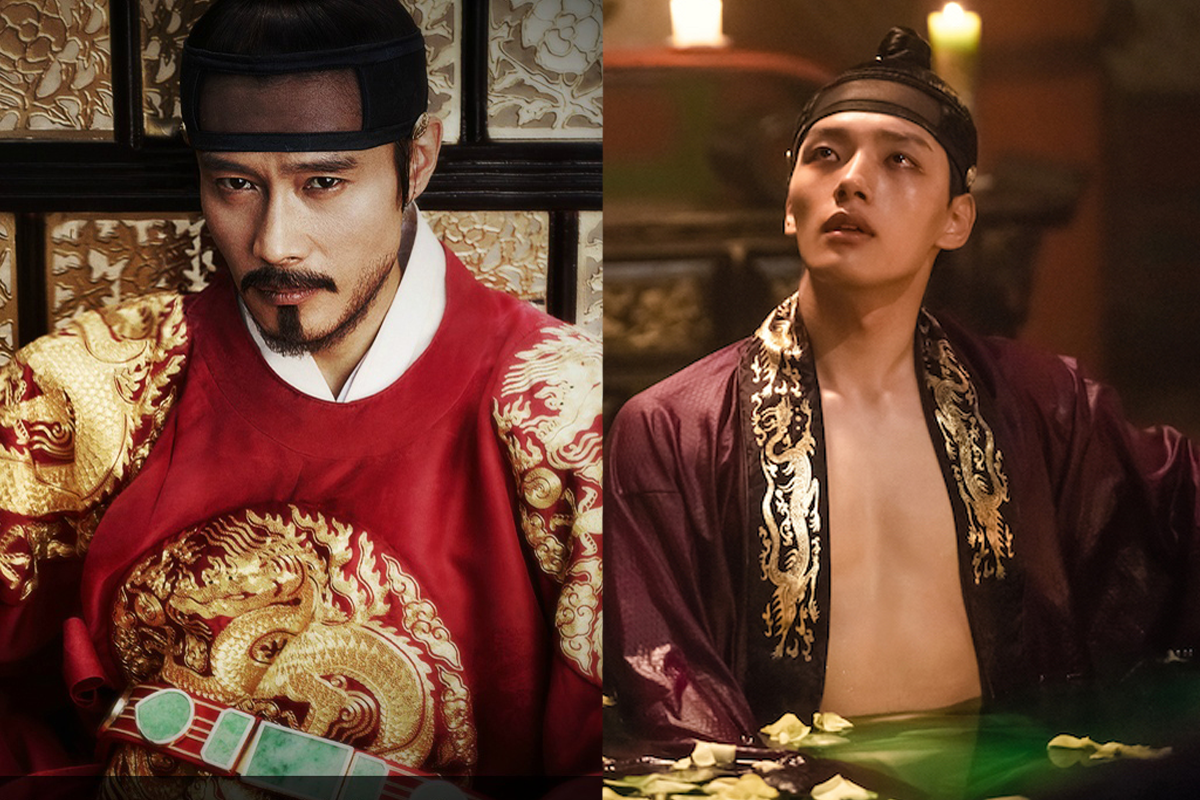 Masquerade, The Crowned Clown
Masquerade, The Crowned Clown
Historical records let us know that Gwanghaegun was deposed in a coup d'état.
Gwanghaegun made a name for himself during the Japanese invasions of the Imjin War. Later, he had his brother executed and stripped his aunt of her titles in order to stabilize his grip of power.
Furthermore, he was considered a traitor by the Ming dynasty for maintaining a friendly relationship with the Manchus.
Thus, he was long considered a cruel tyrant. He is one of two kings who were ousted and not given a temple name. However, these days historians consider Gwanghaegun as a victim of his times, and many sympathize with his sad destiny.
Seonjo (1567-1608)
Historical Dramas: Kingdom
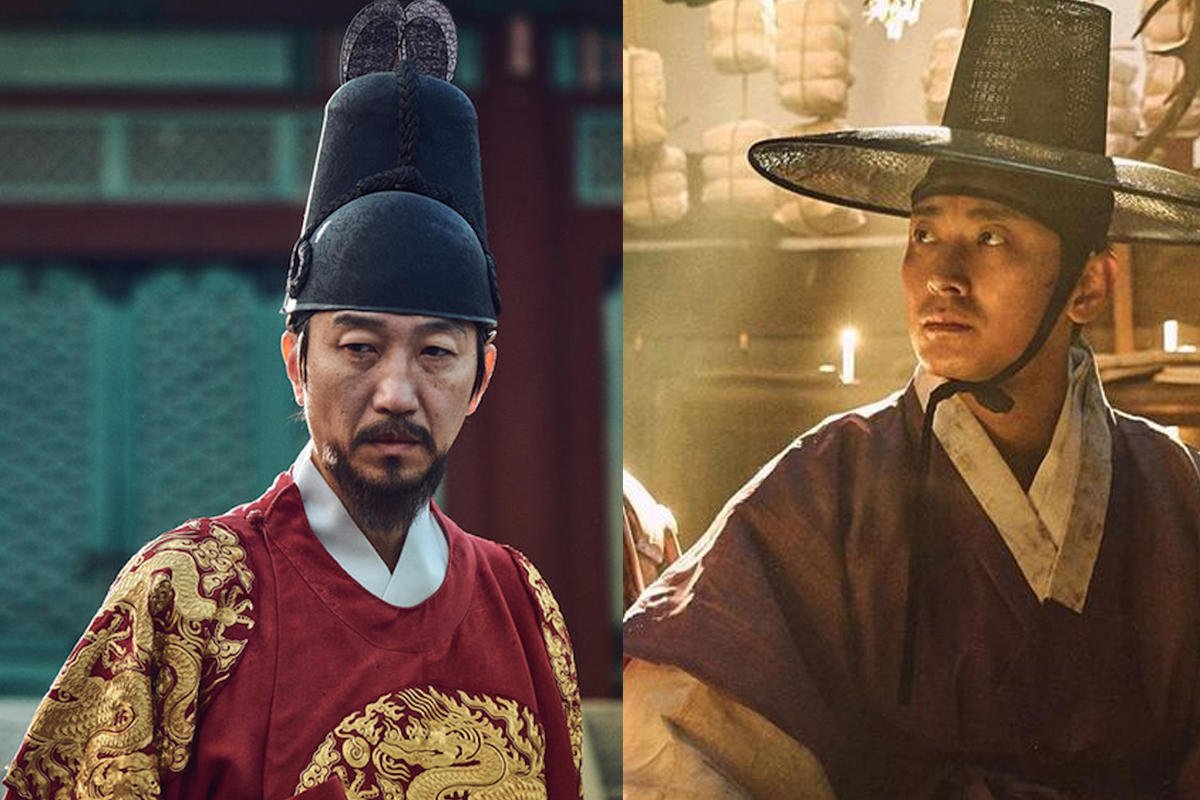 Kingdom
Kingdom
The Netflix drama Kingdom's main character Lee Chang (played by Ju Ji-hoon) is based on the previously mentioned Gwanghaegun. The king who becomes a zombie, in his turn, is based on King Seonjo!
History has put a lot of blame on Seonjo for Joseon's lack of preparation when the Japanese invaded the Korean peninsula during the Imjin War.
Although the war ended as Japan's leader Toyotomi Hideyoshi died of illness, the common people in Joseon suffered heavily, and this is portrayed in Kingdom.
Myeongjong (1545-1567)
Historical Dramas: Flowers of the Prison
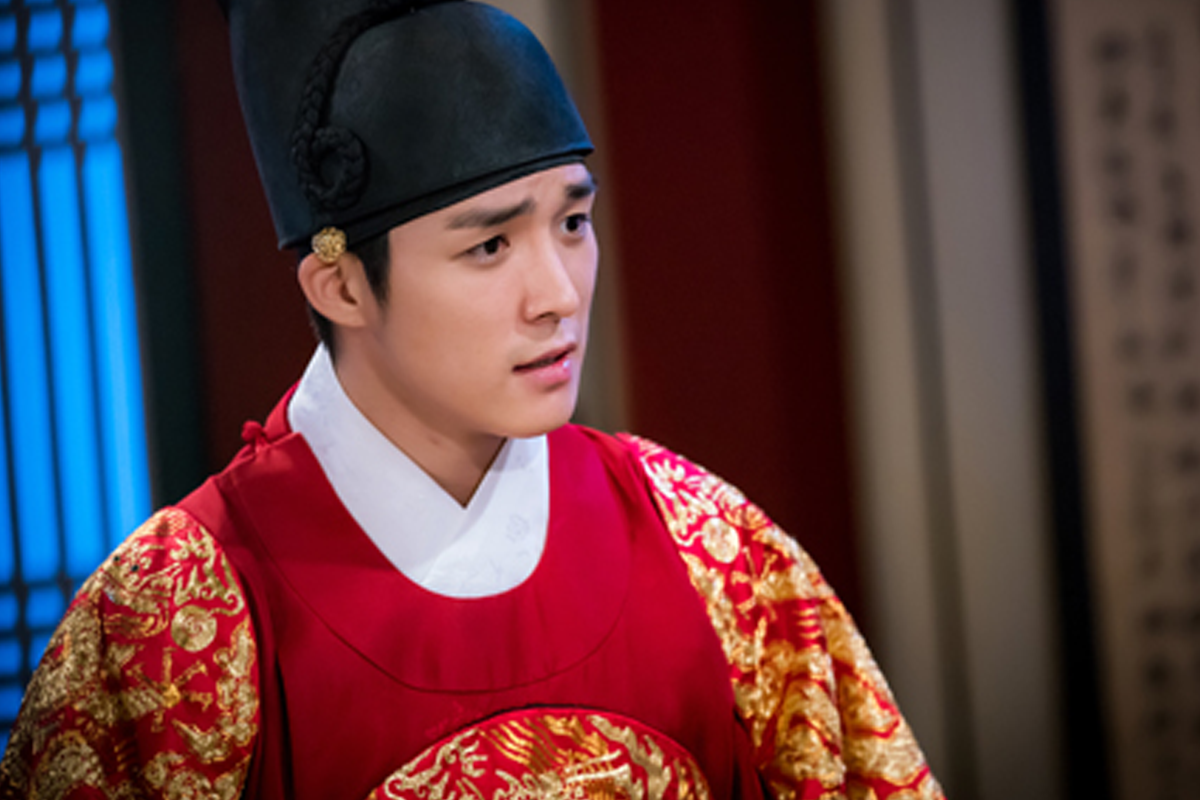 Flowers of the Prison
Flowers of the Prison
For the most part of his reign, King Myeongjong was a ruler in name only, and it was his mother, Queen Munjeong, who held the real power. This is similar to how the later King Cheoljong was put on the throne by his adoptive mother Queen Sunwon.
After the death of his mother, Myeongjong decided to rule Joseon by himself. He started carrying out reforms but passed away only three years after seizing true power.
The 2016 MBC drama Flowers of the Prison is set in the period of his reign.
Injong (1544-1545)
Historical Dramas: Saimdang, Memoir of Colors
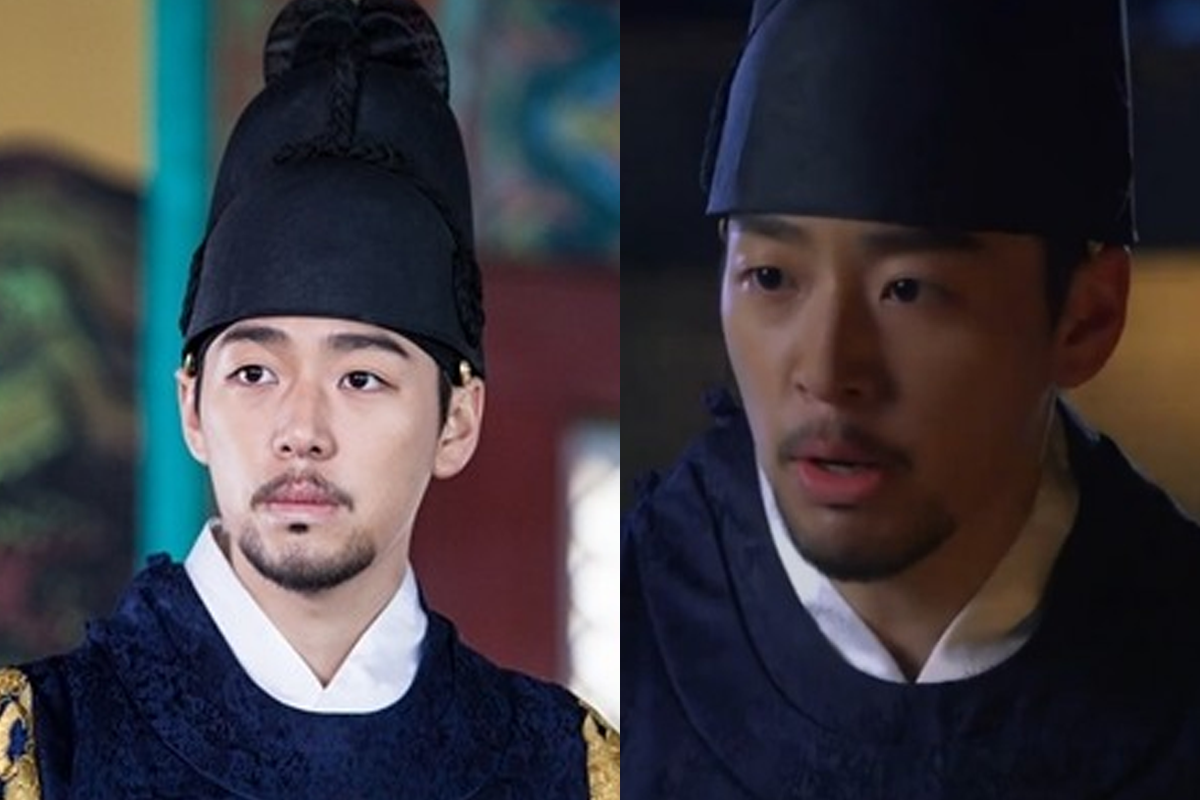 Saimdang, Memoir of Colors
Saimdang, Memoir of Colors
Injong was Myeongjong's older brother. He passed away only a year after ascending the throne.
Because of his short reign, there are few records of his rule. Most Korean dramas only mention his brief stint as monarch as a transition period between his predecessor King Junjong and his successor King Myeongjong.
According to legend, he was poisoned by his adoptive mother, Queen Munjeong.
In the 2017 drama Saimdang, Memoir of Colors, one of the characters is Crown Prince Lee Ho, who later becomes King Injong.
Jungjong (1506-1544)
Historical Dramas: Queen for Seven Days
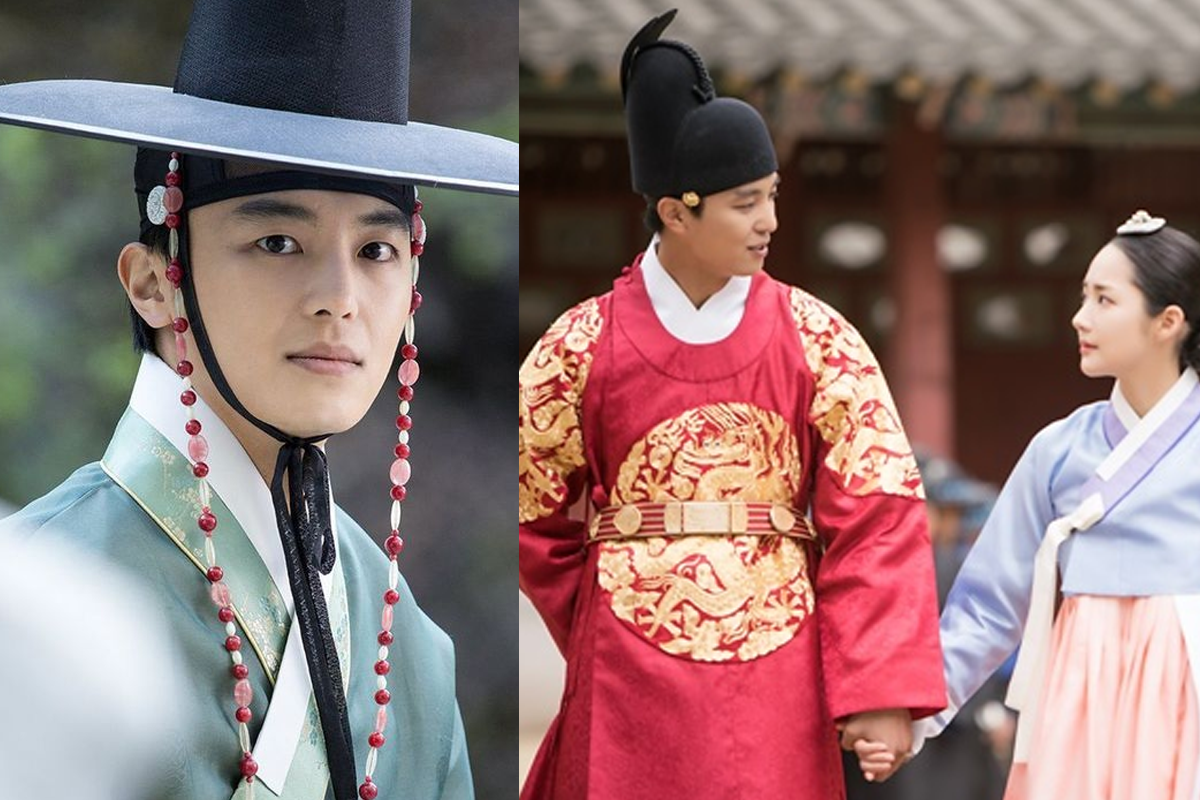 Queen for Seven Days
Queen for Seven Days
Jungjong came to power after his half-brother, the tyrant Yeonsangun, was ousted.
Since his half-brother was deeply despised by many, ministers rallied to rebel, hoping to put Jungjong on the throne instead.
The tragedy in the story is that the father of Jungjong's first wife, Queen Dangyeong, was a supporter of the deposed monarch Yeongsangun.
He lead a failed rebellion against Jungjong, and as a consequence, Queen Dangyeon was soon disposed and expelled from the royal palace.
These events serve as the background story of the 2017 KBS drama Queen for Seven Days.
Yeonsangun (1494-1506)
Historical Dramas: The King and the Clown, The Rebel
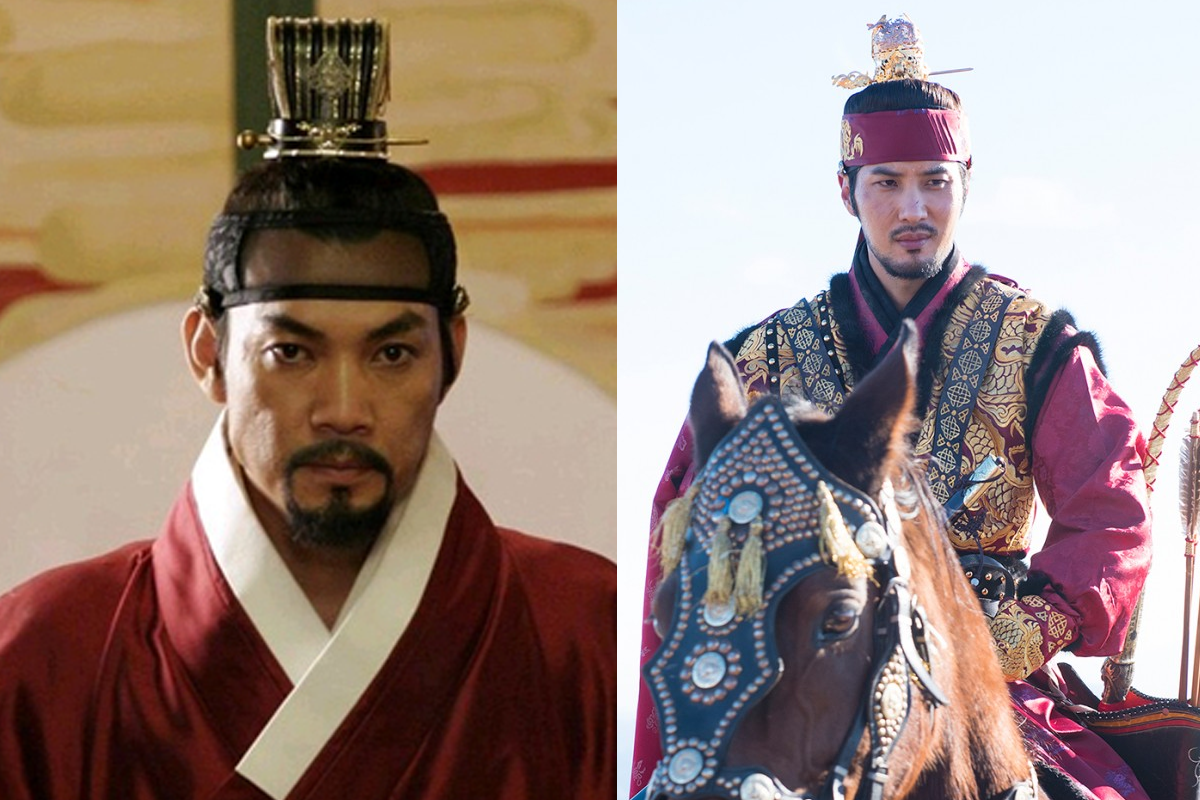 The King and the Clown / The Rebel
The King and the Clown / The Rebel
Most people would agree that Yeonsangun is the most notorious villain among Korean monarchs.
His mother, Queen Yun, is said to have been very temperamental. Once, she physically struck Yeonsangun's father, King Seongjong. After the incident, she was exiled and later executed by poison.
Although Yeonsangun would find out about his mother's fate only after he became king, he too had early on shown signs of a violent character. However, his father never took action to change the succession order.
During Yeonsangun's less than ten years of rule, he ordered many cruel purges and executions. He was finally deposed by officials who had turned against him and was put in exile on Ganghwa Island, the second ruler in Korean history to be deposed.
Historical dramas about Yeonsangun also describe his tyranny.
Seongjong (1469-1494)
Historical Dramas: The King and I
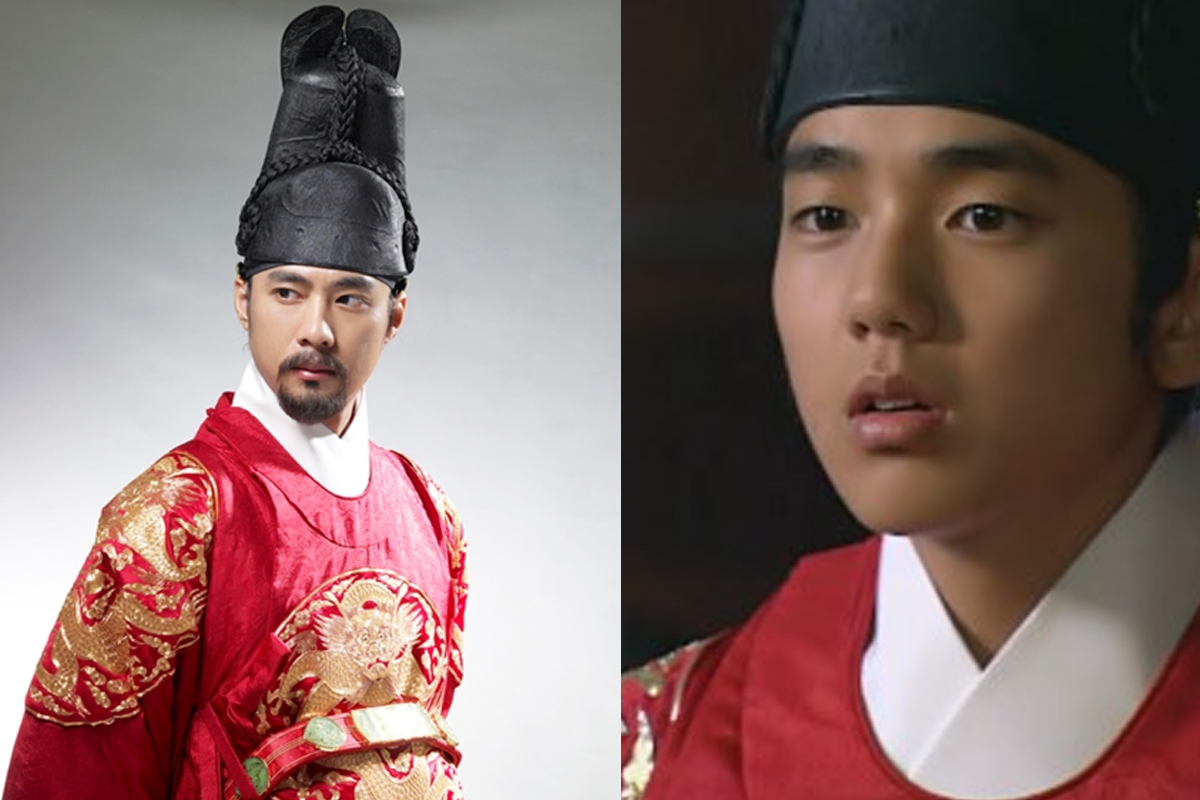 The King and I
The King and I
As opposed to his son, the despised Yeonsangun, King Seongjong is remembered as a wise and fair monarch.
During his reign, the code of law Gyeongguk Daejeon was revised and completed. Laws, customs and decrees dating back all the way to the late Goryeo Dynasty were compiled. It became the foundation for Joseon's criminal justice system.
The Joseon class system and land ownership were also clearly defined, something which may have increased the hardships of future generations.
The 2008 SBS drama The King and I is your best option if you want a historical drama about King Seongjong.
Yejong (1468-1469)
Historical Dramas: Insu, The Queen Mother, The King's Case Note
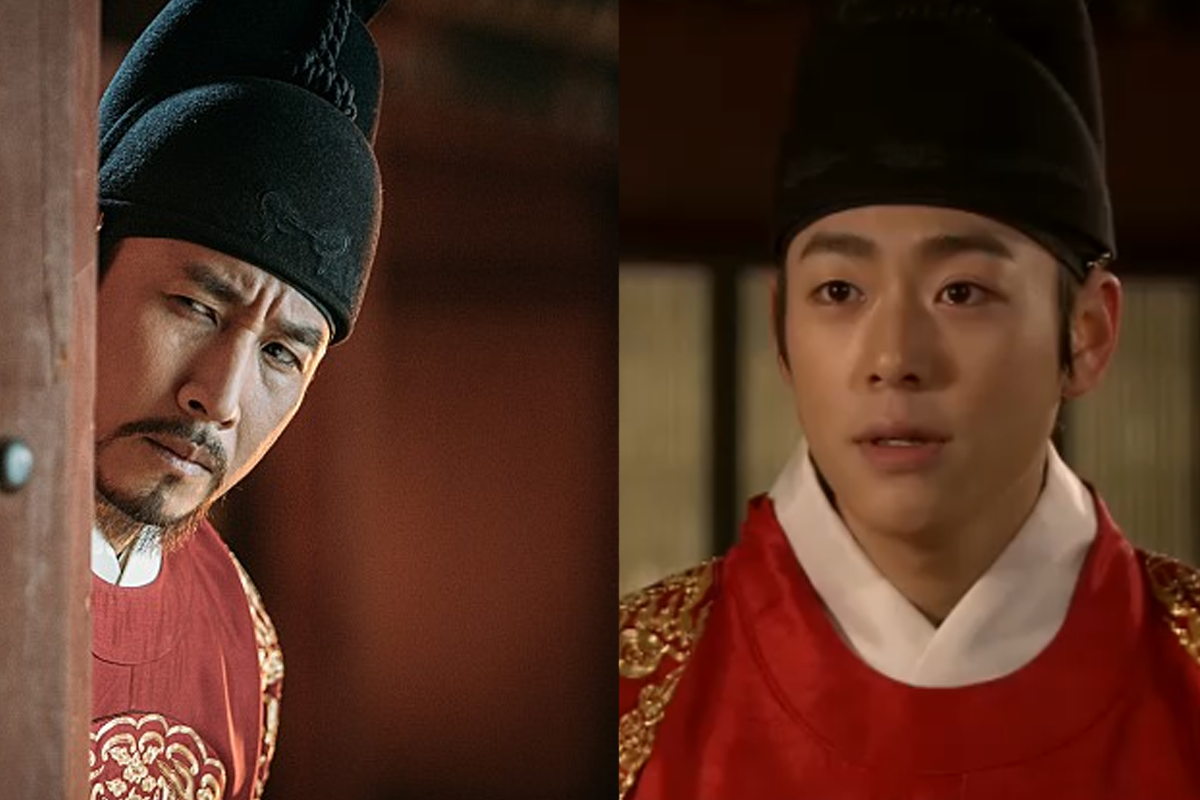 The King's Case Note / Insu, The Queen Mother
The King's Case Note / Insu, The Queen Mother
Yejong came to power only 18 years of age but would pass away only a year later. He was said to be a promising monarch, but due to his short reign, there are few records of him and his deeds.
Lee Sun-kyun plays the role of King Yejong in the 2017 comedy film The King's Case Note. Lee Sun-kyun may be a great actor, but he's sure not 18 years anymore.
His age doesn't seem to matter though, as the story is largely fictional and doesn't describe historical events.
Sejo (1455-1468)
Historical Dramas: The Princess' Man, The Face Reader
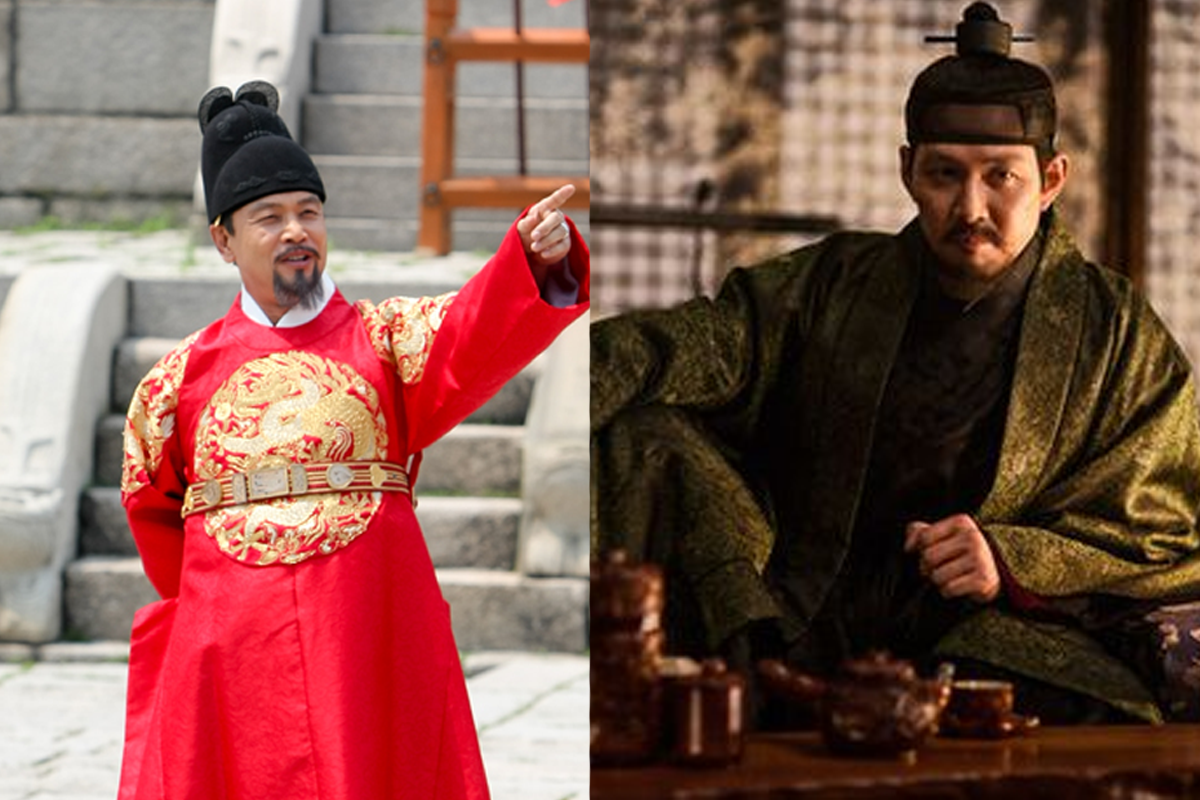 The Princess' Man, The Face Reader
The Princess' Man, The Face Reader
King Sejo has received mixed reviews from later generations.
On the one hand, he is considered to have been rather cruel, and on the other hand, fields such as architecture and culture made advancements during his reign.
In the 2011 KBS drama The Princess' Man as well as in the 2013 movie The Face Reader, King Sejo's cruel deeds are mentioned. He killed his relatives in order to seize the throne and carried out political purges.
The Six Martyred Ministers incident happened under his reign when King Sejo had six ministers executed for plotting to replace him at the throne with former king Danjong.
Danjong (1452-1455)
Historical Dramas: The Face Reader
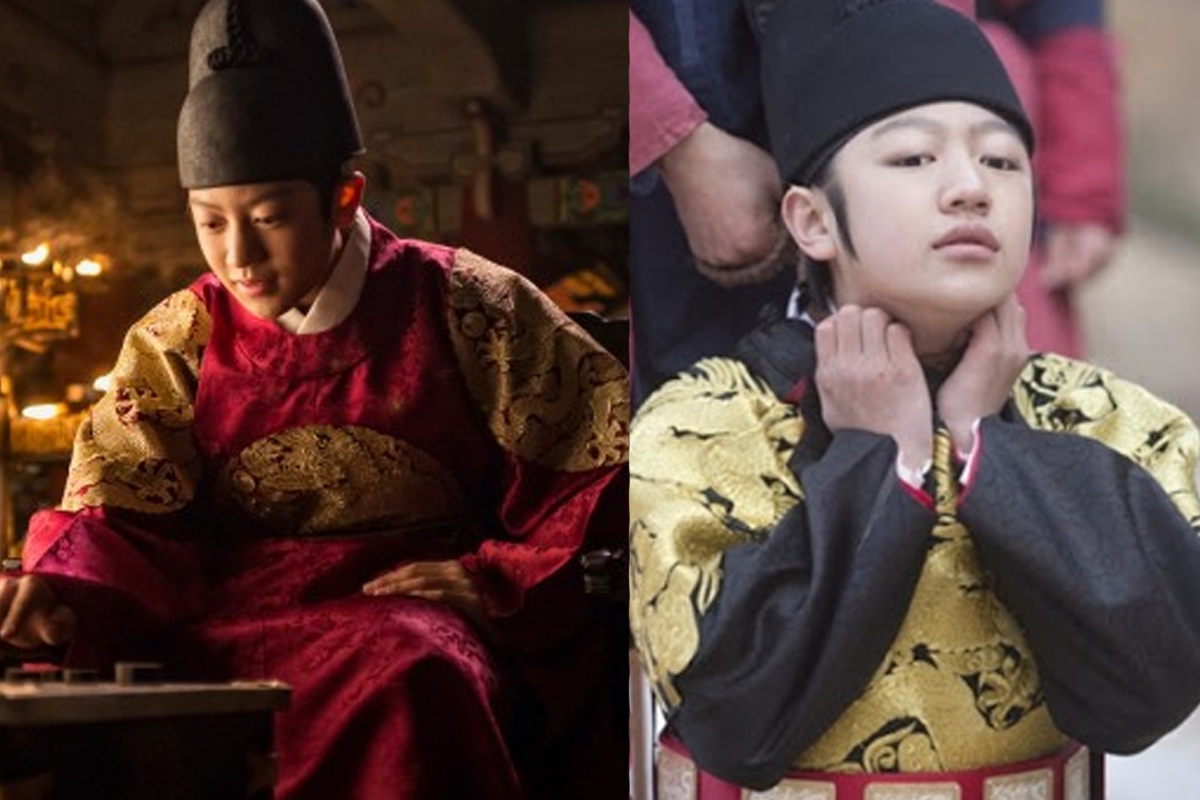 The Face Reader
The Face Reader
Like many others, King Danjong was purged by his uncle, King Sejo.
After only three years in power, Sejo forced Danjong to abdicate. He was then exiled and later put to death. Many scholars who secretly plotted to reinstate Danjong were also killed by King Sejo.
At the time, Danjong was stripped of his royal title. It was only 200 years later, during King Sukjong's reign, that he got his posthumous name King Danjong.
Munjong (1450-1452)
Historical Dramas: The Face Reader
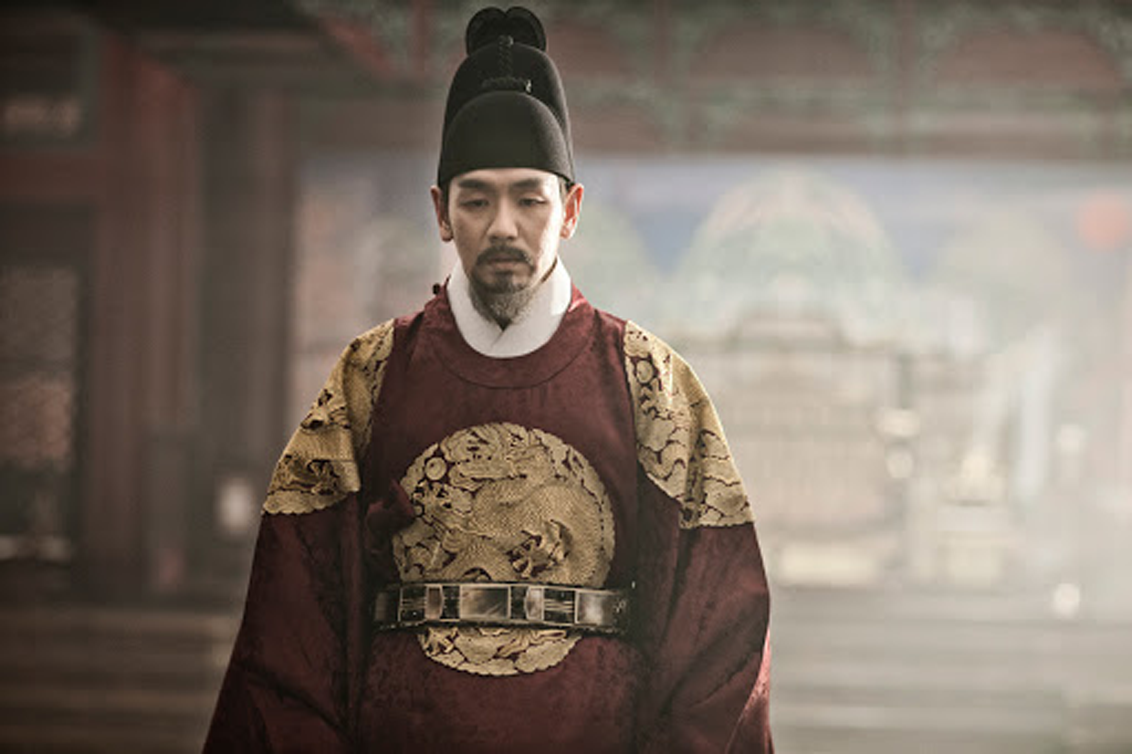 The Face Reader
The Face Reader
After the death of his father, King Sejong, Munjong took the throne as the oldest son. However, he died of illness only two years into his reign, and was succeeded by his twelve-year-old son Danjong.
No one had expected the power struggle that ensued after King Sejong's death when Munjong's younger brother Sejo showed intentions of seizing the throne for himself.
If you are interested in the violent events that unfolded during the period of the Joseon kings Munjong, Danjong and Sejo, we recommend that you watch The Face Reader (2013)!
Sejong (1418-1450)
Historical Dramas: The King's Letters, Joseon Exorcist
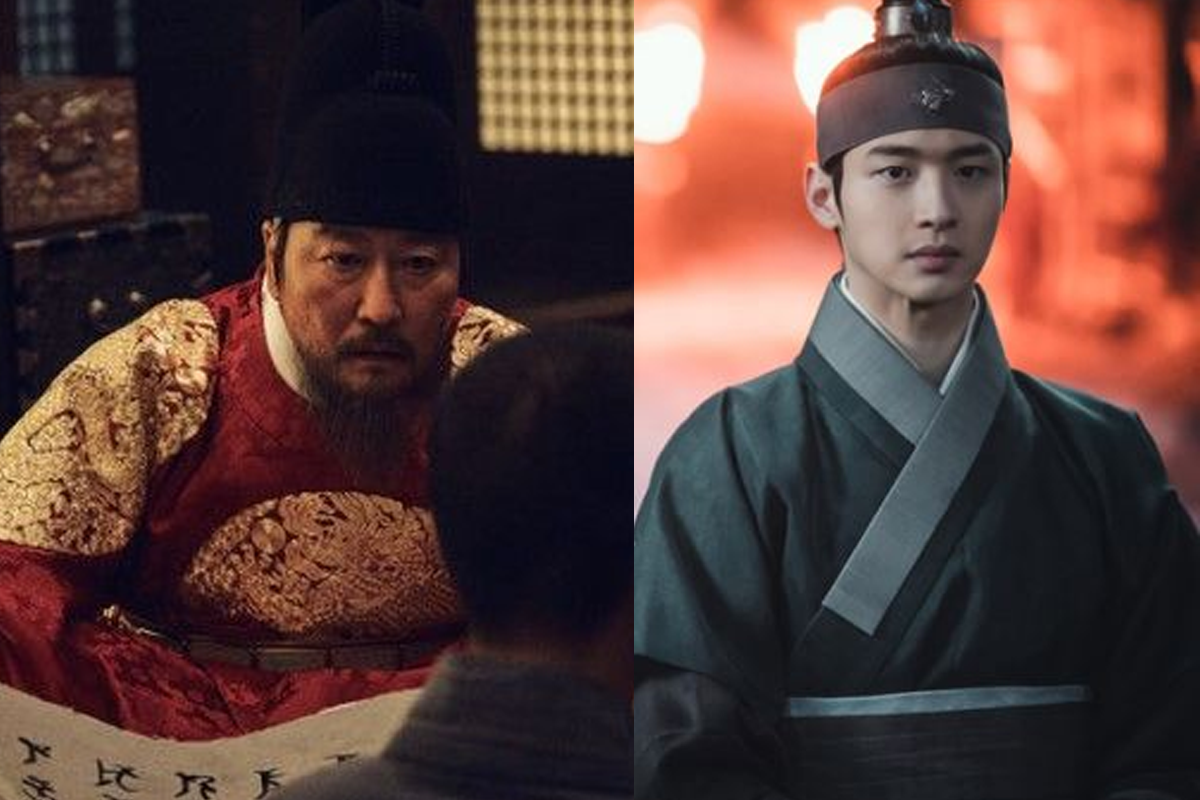 The King's Letters / Joseon Exorcist
The King's Letters / Joseon Exorcist
Everyone is probably familiar with King Sejong. He is held as the greatest king in Korea's history. Among his many achievements, he created Hangul, the Korean alphabet, helping people of all classes to read and write.
The 2019 movie The King's Letters follows King Sejong as he creates the new alphabet.
In Joseon Exorcist, a recent drama that was cancelled after only two episodes, Jang Dong-yoon plays Prince Chungnyung, who later became King Sejong.
Taejong (1400-1418)
Historical Dramas: Six Flying Dragons, My Country: The New Age, Joseon Exorcist
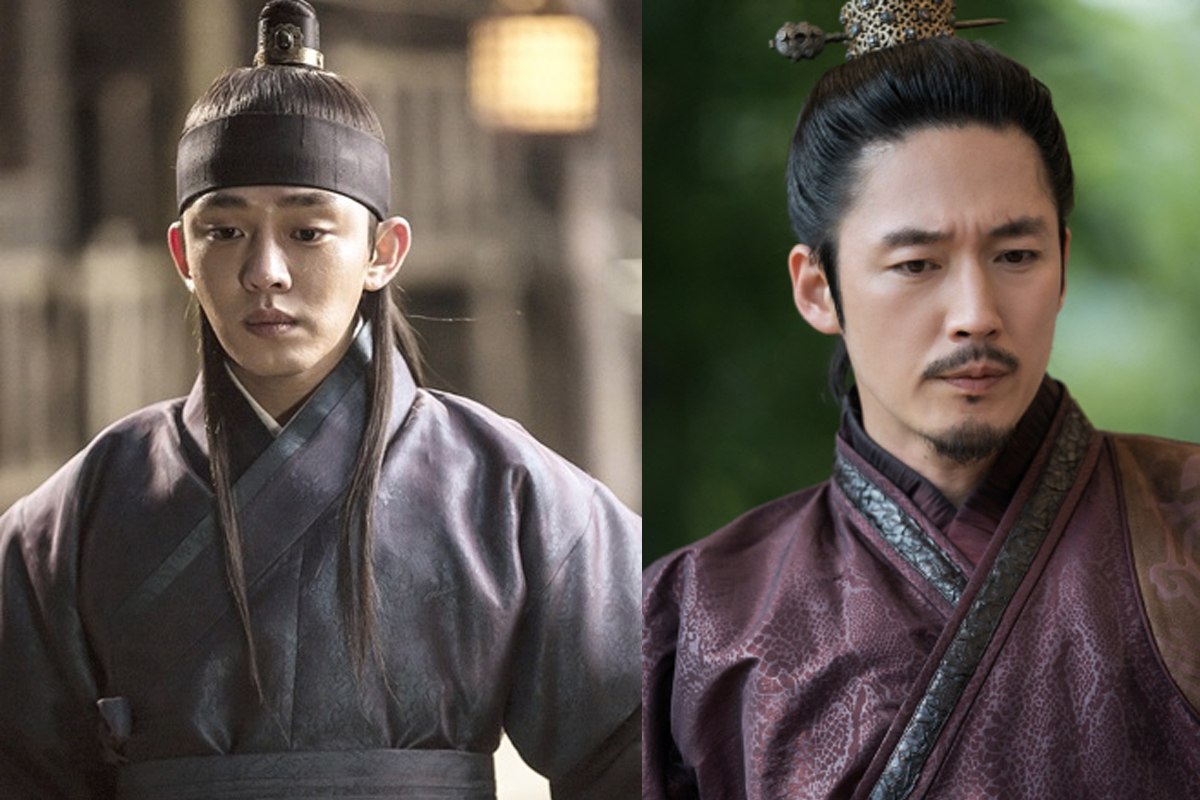 Six Flying Dragons / My Country: The New Age
Six Flying Dragons / My Country: The New Age
King Taejong's legacy has also been widely debated. As a prince, he launched several rebellions against his brothers, killing two and exiling another. He succeeded in seizing the throne after his brother King Jeongjong abdicated and became the third king of Joseon.
King Taejong has been praised for his achievements once he seized the throne. Maybe his biggest achievement was laying the groundwork for his son, future King Sejong.
In addition to the dramas Six Flying Dragons (2016) and My Country: The New Age (2019), he is played by Kam Woo-sung in the previously mentioned drama Joseon Exorcist.
Jeongjong (1398-1400)
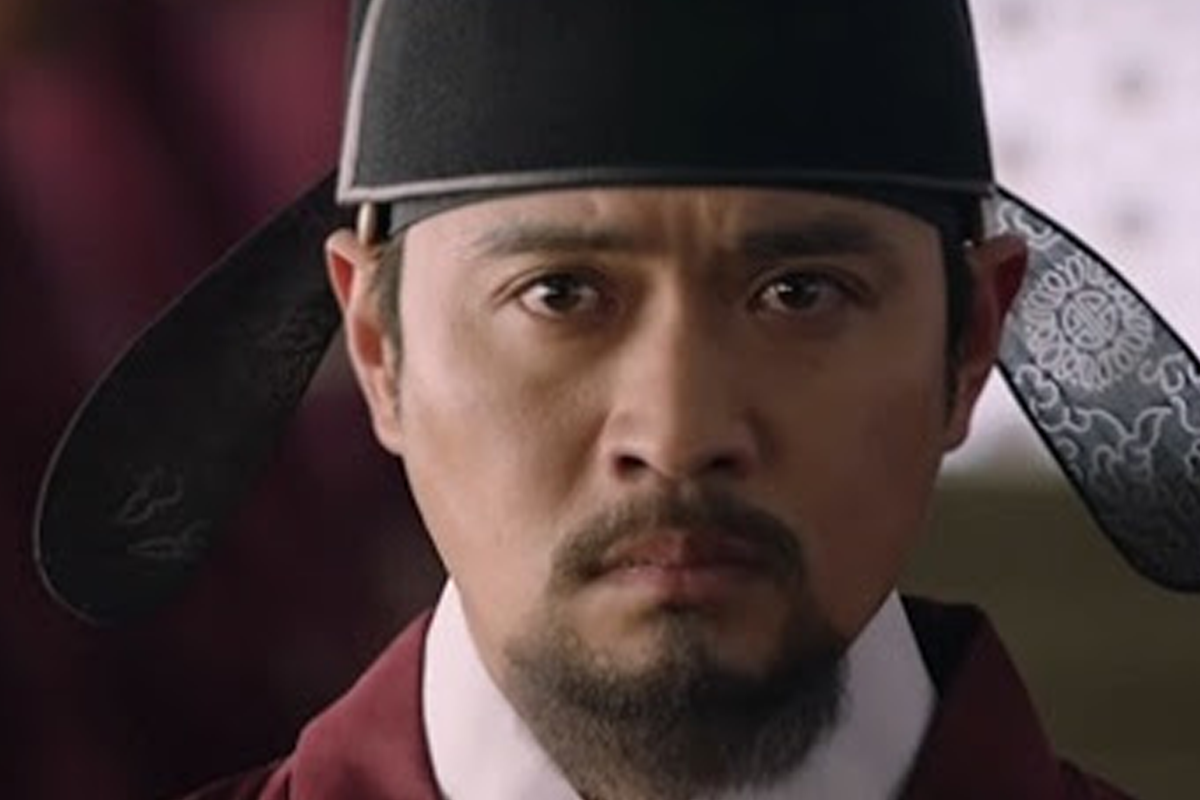 Six Flying Dragons
Six Flying Dragons
Jeongjong was the second son of King Taejo (the first son died young). King Taejo's fifth son, Taejong, would succeed him after only two years on the throne.
King Jeongjong recognized that he would be merely a puppet king under his younger brother, so he chose to abdicate instead.
Because of his short reign, his legitimacy wasn't recognized by later kings. Only several hundred years later, King Sukjong granted him the shrine title King Jeongjong.
Taejo (1392-1398)
Historical Dramas: Jeong Do-jeon, The Great Seer
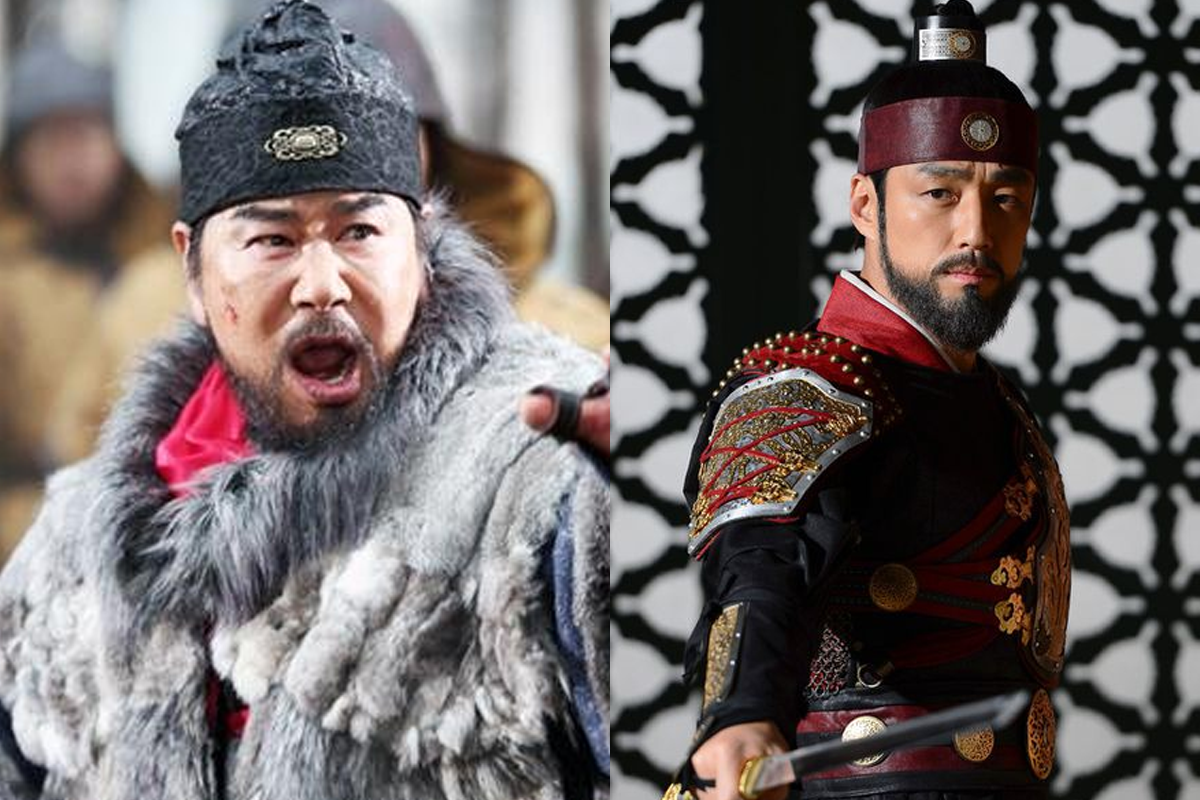 Jeong Do-jeon / The Great Seer
Jeong Do-jeon / The Great Seer
The founding king of the Joseon Dynasty, King Taejo, was a general under the last king of the Goryeo dynasty.
He would go on to rebel and force the king to abdicate. He exiled and killed many members of the old aristocracy in order to secure his newly founded Joseon Dynasty.
This persecution led to many members of the royal Wang clan changing their surname. This is why Wang today is a fairly uncommon surname in Korea.
Above we have listed all kings of the Joseon Dynasty, and we also introduced drama and movie adaptations of their lives.
We hope that this has given you a better understanding of Joseon's history, as well as provide you with some ideas of historical dramas to check out!




